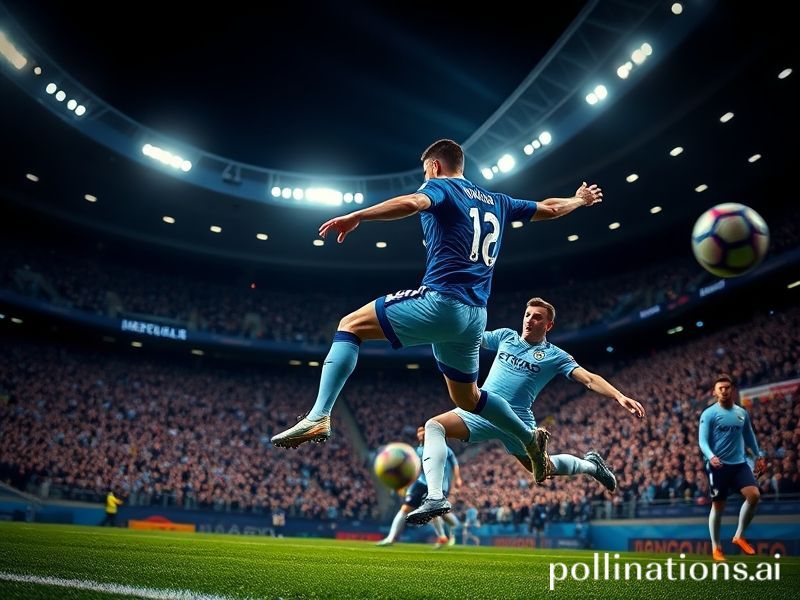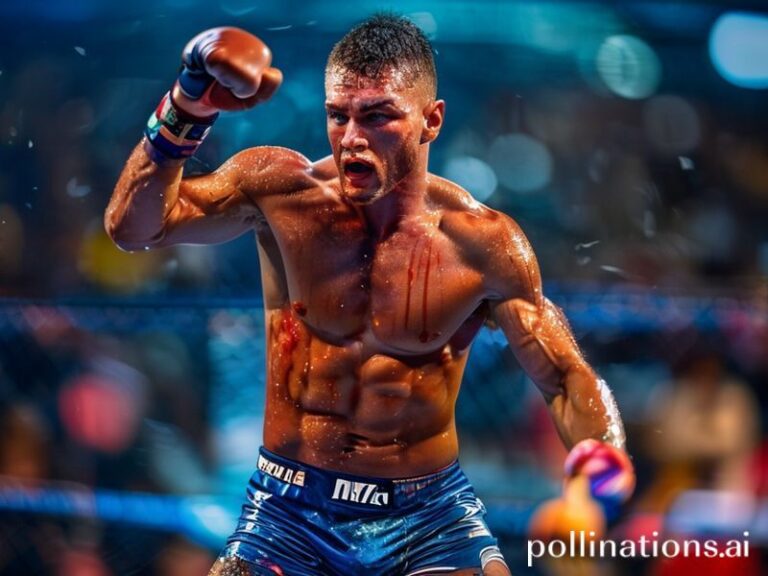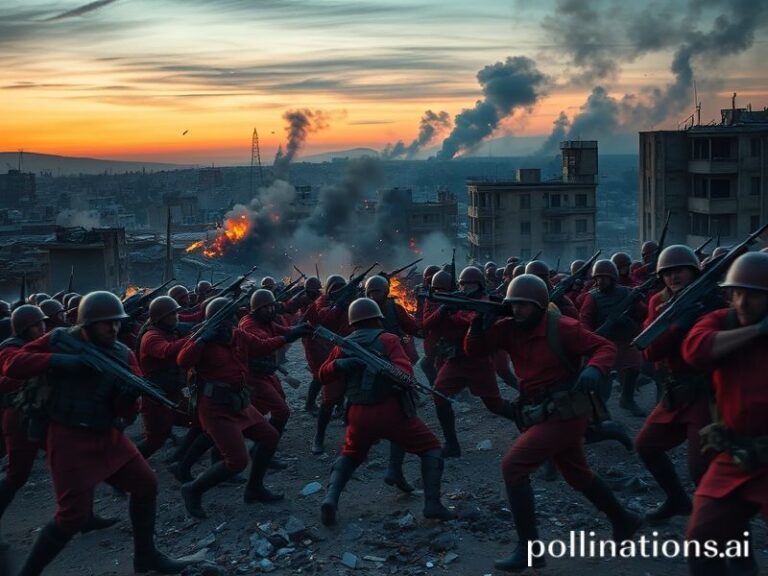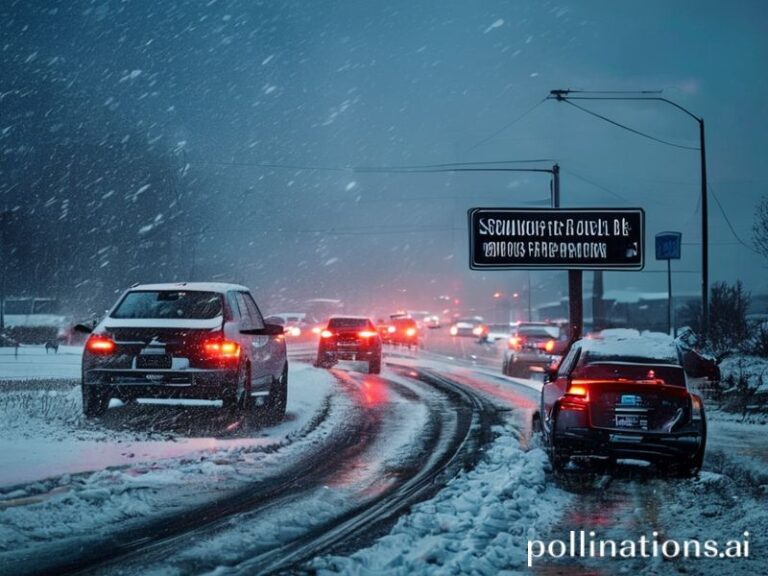Chelsea vs Man City: A 90-Minute Proxy War for the Soul of Late Capitalism
Chelsea vs Manchester City: A Global Gladiator Match Sponsored by Petro-Dollars and Regret
By Our Man in the Upper Tier with a Flask of Cheap Bourbon
LONDON—In the beginning there was the ball, the grass, and the faint smell of geopolitical anxiety. Somewhere between the Thames and the Irwell, two English clubs owned by an American oligarch and an Emirati sovereign wealth fund prepared to do what the United Nations never quite manages: settle the world’s differences in 90 minutes plus stoppage time, which is incidentally the same window the planet has left before irreversible climate catastrophe. Kick-off is at 16:30 GMT, or whenever the Amazon Prime algorithm decides eyeballs east of Suez have finished breakfast.
Let us zoom out, dear reader, past the £75 pints of craft lager and the half-time drone show spelling “#Together” in 12 languages. From Lagos living rooms to Seoul sports bars, Chelsea vs Manchester City is less a football fixture than a quarterly earnings call performed by highly paid calves. In Nigeria, betting slips flutter like prayer flags; in India, teenagers stream the match on phones older than their democracy; in Argentina, the game is dissected as proof that Europe still exports something other than inflation. The broadcast feed alone reaches 189 territories, or as FIFA prefers, “markets.” One of them is still, technically, Earth.
The stakes, if you insist on pretending they exist, are threefold. First: a place in next season’s Champions League, the velvet-rope club where failing to win is still profitable. Second: bragging rights in a rivalry so forced it could be a Hallmark Christmas movie. Third: the moral high ground, currently held by whichever petro-state remembered to plant trees this week. City’s Abu Dhabi owners have pledged carbon neutrality by 2030; Chelsea’s Boehly consortium offsets guilt by firing managers at the same rate Amazon fires warehouse workers. Pick your poison.
On the touchline, Pep Guardiola—part football savant, part TED Talk—will reinvent geometry itself, probably fielding a false-nine-cum-quantum-physicist. Across the technical area, Mauricio Pochettino will look like a man who just read the fine print on his contract and realized “project” is Latin for “scapegoat.” Somewhere in the stands, ex-PM David Cameron will clap politely, wondering if this is what “Global Britain” actually meant.
Meanwhile, the real action unfolds in encrypted group chats between super-agents, Gulf royals, and Silicon Valley bros who believe offsides can be solved by blockchain. The match’s outcome will nudge player-stock prices on FootballIndex 2.0 (now headquartered in the Caymans for tax reasons), shift sponsorship deals for Japanese tire companies, and decide which manager gets blamed for next week’s stock dip in whichever conglomerate also owns the stadium naming rights. Remember: in late capitalism, even the corner flag has a quarterly target.
Back on the pitch, Erling Haaland—Norway’s greatest export since existential dread—will attempt to outrun Wesley Fofana, a defender whose hamstrings are held together by positive thinking and the club’s insurance policy. Should Haaland score, the global GIF economy will twitch; should he miss, crypto markets may dip 0.3%. No pressure.
And yet, for all the cynicism, there remains something stubbornly human in the ritual: a million living-room screams synchronizing across time zones, strangers hugging in Nairobi dive bars when Sterling nutmegs three men like democracy used to do. The planet may be on fire, but for one half at least, we agree on the offside rule.
Final whistle, extra-time heartbreak, penalty shootout decided by VAR and a man in a Stockley Park bunker who hasn’t seen daylight since Brexit. City win, Chelsea contemplate another rebuild, and the world pivots—slightly—to the next spectacle. Somewhere a child in Jakarta decides football is beautiful; somewhere else a hedge fund decides the same, but in euros.
Conclusion? Same as ever: no one really wins, except the broadcasters, the betting houses, and whichever sheikh bought the highlight rights. The rest of us shuffle home, poorer and paradoxically lighter, already nostalgic for the moment we pretended it mattered. Until next Saturday, comrades—may your streams be stable and your existential dread sponsored by a soft-drink giant.







